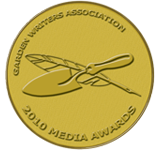Nurturing Urban and Local Sustainability: A Fruit Tree Grows in Boston
February 1, 2010 by Robin Plaskoff Horton

How can the health of people and the environment in urban areas become a community responsibility? Boston’s EarthWorks takes a step forward. Founded in 1989, EarthWorks is a non-profit organization operating under the slogan: planting a healthier and more sustainable urban environment.

Photo Collage: Earthworks Boston
EarthWorks serves three main functions:
1. Facilitates community maintenance of urban orchards.
EarthWorks starts orchards in primarily low-income neighborhoods and provides volunteer training for planting and growing fruit-bearing and nut-bearing trees, shrubs, and vines. The orchards allow public access to the foods grown, providing a great incentive for residents to help their city and their bodies become healthier. There are currently 47 Earthworks orchards in the greater Boston area.
2. Revives deserted urban spaces.
EarthWorks focuses volunteer and education programs on planting trees for the city’s neglected spots. EarthWorks created the Urban Wilds Restoration Program in 2001, an ongoing initiative that has restored 250 acres of city-owned urban wilds in Boston. A collaboration with JP trees and the Urban Ecology Institute added 250 trees in the Jamaica Plain neighborhood of Boston.
3. Provides an outdoor classroom for children to learn to care for the environment.
The successful Outdoor Classroom Program gives lessons on tree care, gardening, composting and basic ecology to 1,000 children in eight Boston public schools.

Mulberry trees at an EarthWorks orchard on the north end of the Boston University Bridge. This humble site hosts two mulberry trees, raspberries, and a grape vine. Come spring, the little park will look much more fruitful.
EarthWorks is an example of networked efforts to improve the health, beauty, and functionality of the natural urban environment. Like any stylish rooftop garden or farm, EarthWorks projects adhere to the principle of packing as much nutrition and beauty as possible into available limited space.
By encouraging personal efforts to grow plants and food for the entire city, EarthWorks blurs the line between private and public property. And as the orchards mainly grow in underserved neighborhoods, the all-too-critical buzzword “sustainability” is no longer only relevant to a privileged and powerful few. Rather, given the will, all will have an open channel to take care of their city.
____________________________________________________________________________
This guest post was contributed by Jenny Xie. Jenny is a freshman at MIT, standing curiously at the intersection of architecture and urban planning, and surviving New England with clam chowder and rainboots. She wants to learn all about the troubles of a modern city and design to fix them.


 e-mail a friend
e-mail a friend








Are there any laws on the books in Boston that prohibit the planting of fruit trees in street-side right-of-ways? (The grass strips between the sidewalk and the road.)
We have a rarely-inforced law here in Portland (OR), and although it usually isn’t enforced, and home-owners rarely comply with it, it has stopped local non-profits with missions similar to EarthWorks’ from planting in these areas, due to liability concerns.
Parking strips strike me as some of the most fertile ground for urban edible landscaping for two reasons: 1) it puts food production into the commons, and 2) any trees planted there help mitigate the urban heat island effect by shading the streets.
Neat post, great organization! Very Inspiring.
LB
— February 1, 2010 @ 16:30
I have gotten lucky today and have read some pretty inspiring posts. It gives me hope for our environment and our people.in
— February 2, 2010 @ 00:14
It’s a great way to teach the lesson of perseverance and hard work… it always bears fruit.
— February 2, 2010 @ 19:04
@ Leonard –
In terms of planting trees in Boston, the city Parks department is responsible. The rep from the dept. said that they plant crab apple and cherry species – basically only species that have “high tolerance for growing in bad environments and don’t produce a lot of litter”. I suppose that’s why planting public fruit trees in general is not encouraged or popular. If residents or non-profit organizations want to plant their own fruit trees (only the qualified species mentioned before) on specific properties, they would need to file a request (followed by inspection) to the Parks dept. – only if the desired planting location also meets a set of requirements listed here: http://www.cityofboston.gov/Parks/StreetTrees/seasonal.asp. I think the one most relevant to your question about the street-side right-of-ways grass strips is the one saying that the adjacent sidewalks would have to be at least 6-foot-wide excluding curb; essentially, just a lot of specific requirements.
The guy also mentioned how non-profits can request grants from the Parks dept. for planting appropriate fruit trees at appropriate sites. I think the Boston fruit tree regulations are a little more welcoming, but the obvious, extensive list of requirements and general bureaucracy would deter some enthusiasm.
@ Shane & Bridget – absolutely.
— February 3, 2010 @ 18:02
There’s an iPhone app called Find Fruit that allows you to find fruit trees on public lands: “Find Fruit unlocks cities, enabling you to explore in new ways. Instead of being trapped in the concrete jungle, this app is your key to the edible urban forest! Find Fruit helps you find fresh fruit growing down the street and learn more about fruit trees.”
— February 7, 2010 @ 13:58
is this organization still in existence?
if so please email me at mgmullaney0@gmail.com
— June 14, 2013 @ 18:57